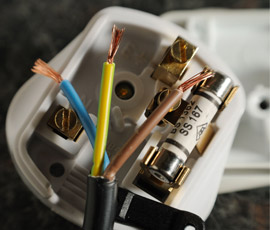Plan to avoid accidents on poultry farms

Poultry producers must address work practices to help minimise on-farm accidents and not simply rely on insurance cover.
Around 45% of all insurance claims in the poultry sector over the last three years had been as a result of employers’ liability, NFU Mutual underwriting manager Paul Shattock told a recent NFU poultry conference at Garstang, Lancashire.
Many were caused by “slips and trips” of staff on the employer’s premises, or through accidents associated with manual handling and operating machinery.
Individual claims had involved significant pay-outs including £560,000 for a fractured shoulder, £420,000 for an injured hip, £398,000 for a back injury and even £264,000 for an injured wrist.
“The accidents we see are often associated with the use of unsafe machinery – possibly inadequately guarded or the operator hasn’t been fully-trained,” said Mr Shattock. “While insurance is there to support our members and settle claims, it is not the whole solution. There is a need to minimise the impact of the losses to the business.
“Adverse publicity, possibly through a fatality or serious injury to a local person, can cause damage to the business’s image. And if there are unsafe working practices or unsafe machinery, the HSE will get involved. So there are many more aspects of managing risks besides simply having the insurance cover.”
Surveying potential risk areas before insurance cover is activated is a service provided by the NFU Mutual. “We like to work with customers to undertake a risk assessment and put in place anything that will minimise accidents occurring,” he added.
Stuart Downing, technical director at Vulcan Inspection Services, highlighted areas of poultry businesses now covered by regulatory inspections. These included lifting operations involving loaders, telehandlers and fork-lift trucks, as well as pressure safety systems, dust extraction and the control of substances hazardous to health.
Focusing on regulations concerning electricity at work, Mr Downing said that, of the 33 regulations in place, there were 16 that poultry producers needed to be aware of.
“These are statutory and have to be complied with, but it is important that any regulatory checks that are carried out are undertaken by competent electricians who are aware of the specific conditions that can affect electrical installations on farms.
“If a poultry producer has had re-wiring work undertaken in the past he would find there is a big disparity with the current requirements. The Electricity at Work regulation states that installations have to be maintained in a safe manner. If that is not the case, it is a breach of those regulations,” said Mr Downing.
News and information on health and safety
